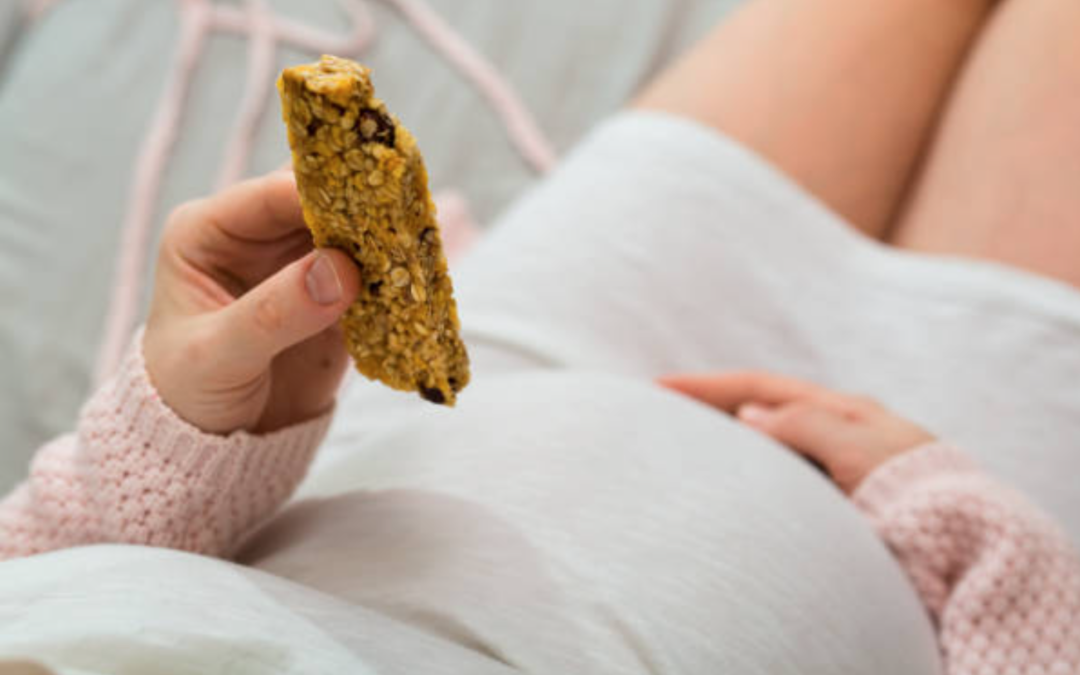We know you’ve heard that labor can be long–we’re talking 24-48 or more hours for some. You may have also heard that eating in labor is sometimes restricted by hospital policy. By that logic, birthers could be going multiple days without food! Sound unappealing? Let’s unpack this.
Why is fasting required by some hospitals in the first place?
These policies began in the 1940s to prevent the risk of aspiration, which is when a person’s stomach contents enter the lungs. This can cause serious infection and even death. Aspiration during birth was more common in the early 20th century, when general anesthesia was used for almost everyone. Now, general anesthesia accounts for less than 6% of Cesarean births, meaning most people are conscious and can notify the medical team if they are going to throw up, medications are used to reduce the risk of nausea, and tools are used to prevent the risk of aspiration. Thankfully, the risk of aspiration has become very rare.
What does the research say now?
The research is really all over the place, but one constant is that laboring with less restrictive eating and drinking policies resulted in shorter labors by 16 minutes. Though there were no differences when it came to Cesarean birth, forceps/vacuum use, vomiting, newborn Apgar scores, or any other health issues, much of this can be attributed to the behaviors of your care team. One study also found that people permitted to eat had higher satisfaction levels during labor! Satisfaction in your birth experience is not often measured for scientific studies, but we know it makes a difference in the overall well-being of families in their postpartum period and beyond.
What about aspiration illness and death today?
In one large study, researchers found 33 people died from aspiration during a Cesarean under general anesthesia, which was approximately 1 death for every 1.4 million births. (Hawkins et al., 1997) And in the UK, where people are encouraged to eat or drink during labor, a study found 9 cases of aspiration, including 1 death, out of 1.5 million pregnancies from 2013-2015. According to the American Society of Anesthesiologists, “Most healthy women can skip the fasting and, in fact, would benefit from eating a light meal during labor, suggests research being presented at the ANESTHESIOLOGY® 2015 annual meeting.” Some argue that nourishing the body in the manner it requires, allows it to function at peak performance, especially since the current protocols and tools in place significantly reduce the risk of asipiration. It should be noted that the ASA has not changed their official stance that laboring people should consume only clear liquids. They also point out that certain conditions that affect stomach emptying, like pre-eclampsia and use of IV opioids, may increase risk of aspiration and may be situations that necessitate fasting after all.
Wait.. Will I even want to eat during labor?
Your doula will likely suggest eating in early labor. Many people still have interest in small meals. Consider a nice blend of protein, carbohydrate and natural sugars. Many people lose their appetite in active labor, and some are nauseous and/or vomit throughout. If you would like to eat solid food, keep simple, high-calorie snacks on hand. Liquids like juice, gatorade or laborade, and soup may be easier to stomach, but some like fruit, honey, nut butters and protein drinks.
Bottom Line
Talk with your care provider and birth team and consider the risks and benefits for your specific situation. Consider reviewing the research in greater depth so you can have an informed discussion with your provider. You always have the right to decide whether you’d like to eat or drink during labor.
By Danielle McFadden



